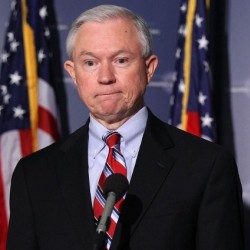Banning Online Gambling Would be a Waste of Time

During the US election, many people expressed their hope that Donald Trump would take a positive approach towards online gambling, having been a casino owner himself in the past. At the same time, others raised concerns that the people Trump was surrounding himself with could not be called online gambling friendly by any definition of the word. Recent rumors out of Washington indicate that those who were worried about what a Trump presidency might mean for online gambling were not just being alarmists, either, and recently there has been talk that Attorney General Jeff Sessions has online gambling in the cross hairs.
Sessions Against 2011 Opinion
Sessions, who often took up moral issues as personal causes when he served as a Senator, has never been shy about being opposed to gambling. During his Attorney General confirmation interview, for example, Session said that he was “shocked” by the Department of Justice’s reinterpretation of the Wire Act (1961) in 2011, which saw the law as only applying to sports betting, thus paving the way for individual states to launch their own Internet gambling industries, if they so desired.
As Jeff Sessions subsequently commented during his confirmation hearing: “I was shocked at the memorandum – I guess – the enforcement memorandum that the Department of Justice issued with regard to the Wire Act and criticized it. Apparently, there is some justification or argument that can be made to support the Department of Justice’s position, but I did oppose it when it happened and it seemed to me to be an unusual.”
Sessions then went on to say that he would revisit the reinterpretation once he took office, and “would make a decision about it based on careful study.”
According to insider reports, he is now considering whether or not to push for an outright ban on online gambling that would shutter the virtual casinos in Nevada, New Jersey and Delaware and put a halt on gambling expansion legislation that is being debated in states like Pennsylvania, New York, Michigan, California and Massachusetts.
Loss of Jobs
While people can argue the morality of online gambling all they want, the truth of the matter is that banning online casino sites would have an immediate negative impact on the economy. New Jersey, for instance, would see 3,300 people suddenly unemployed, and the other two states that offer online gambling would also see jobs eliminated. Furthermore, states that receive revenues from online lottery ticket sales would also suddenly see those sources of funds dry up.
Reduced Options for State Budgets
Prohibiting states that are currently considering online gambling legislation would stifle local economies, especially as many states are considering the move largely because they are in need of extra revenues to balance their beleaguered state coffers. By banning online gambling, the federal government would therefore be forcing already cash strapped states to focus on other methods of increasing revenues, such as raising taxes, which would negatively impact consumer spending. On top of that, the potential 18,000 jobs that the online gambling industry would likely create in those five states would never be filled. Land-based casinos would also be negatively impacted; those in struggling areas like Atlantic City could even be at risk of closure, which would result in more job loss.
Consumer Protection Risks
In addition to the short-term problems that a full federal ban on online gambling would cause, there would certainly be long-term issues from the move as well. This is because legalizing online gambling provides protection for consumers that want to place wagers online, whilst also working to curb money laundering and funds derived from online betting, slots, table games and poker being used to fund illegal activities.
An all-out ban on online gambling would therefore return the world of Internet gambling back into darkness, as the idea that people would simply stop online gambling following a federally imposed ban is laughable. Currently, millions of people in the United States make illegal bets and play on unregulated sites every year. Banning online gambling would only serve to make the situation worse for both players and law enforcement officials alike.









